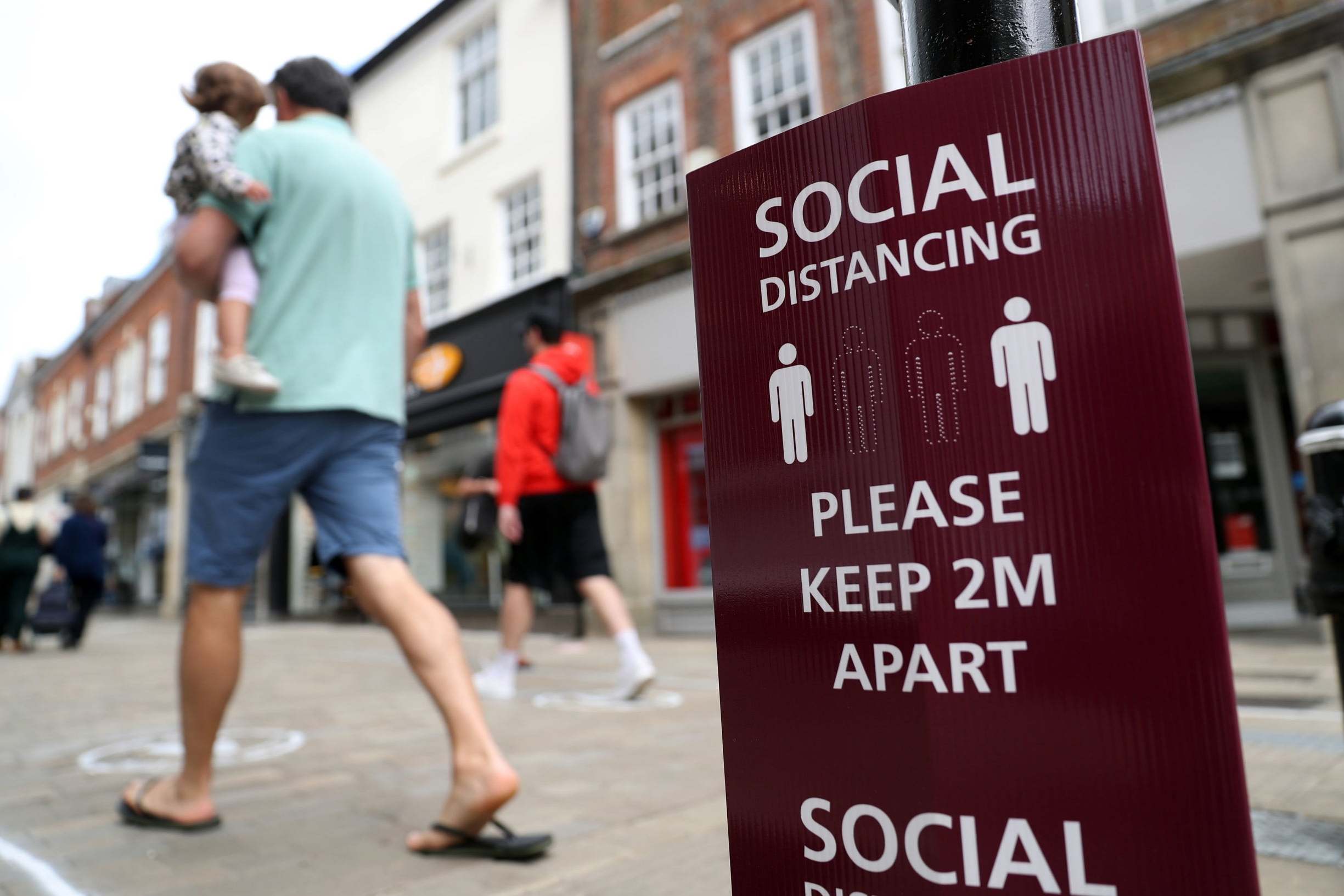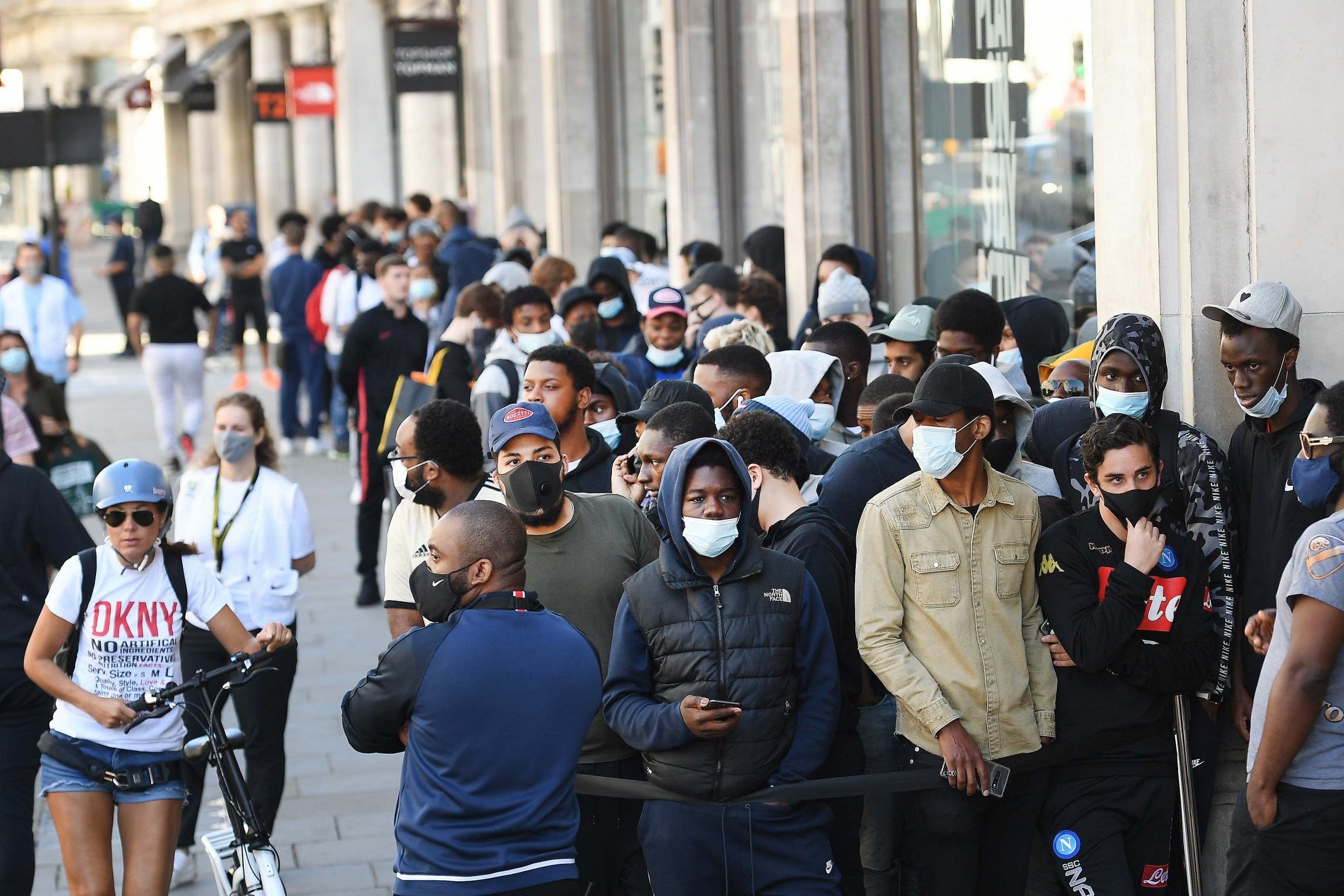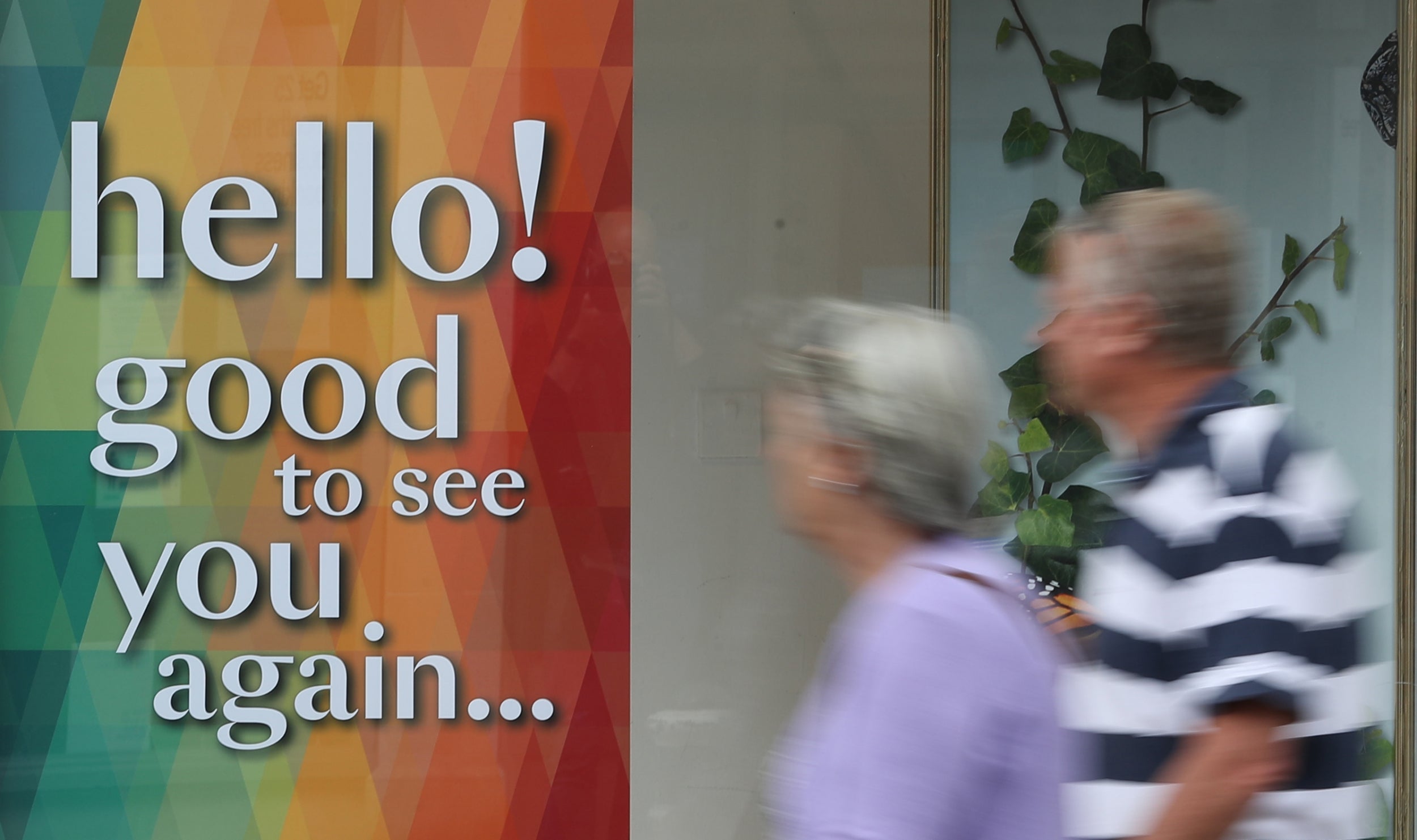The queues outside the shops don't tell the whole story - Britain's independent stores are facing their biggest challenge yet
James Moore's trips to Westfield and Brick Lane on Monday expose the stark reality for thousands of independent retailers as the Covid recession looms


My experience at two very different shopping centres on the day that 'non-essential' retailers threw open their doors gave a stark picture of the economic challenge facing Britain in the months ahead.
First I took the temperature at Westfield Stratford City, east London’s great temple of consumerism.
If you’re after a chain, the chances are it will have an outlet there.
At least some of them had cause to feel cautiously optimistic as the contactless cash registers started ticking over.
While Primark was all the rage elsewhere, it was Zara that boasted the biggest queue I saw in Stratford, beating even the nearby Apple store.
At first glance I was put in mind of the scenes that usually accompany the release of a new iPhone model. It wasn’t iPhones they were after, however.
“Offers,” was what I was told by one of the shoppers in its queue.
I stopped to talk to Max in the Apple store queue. Like Zara, a snake like system was being employed. Conversation is slightly challenging when both of you are wearing masks, but we managed to get by. Did he feel safe, I asked. “Yeah, the mask helps,” he said, explaining that he was there because he needed a new handset for work.
Suge was confident enough to be out without a mask. An NHS nurse, working in paediatrics, he’d been lured out by the 50 per cent discount offered to NHS workers by Sports Direct. Its boss, Mike Ashley, has had a decidedly mixed pandemic. But it’s fair to say that the NHS offer went down well. Suge was certainly happy.
Did he feel safe? “Yeah, I feel fine,” he said.
Adele, however, was less certain. “I guess I’m 50-50,” she confessed, while stopping to discuss the next venue with a friend. “But we just wanted to relax. We just wanted to get out,” she said. “You’ve got to think about your mental health.”
Westfield’s food courts were closed. Ditto its multi-screen Vue cinema and its Aspers casino. But weeks of lockdown meant the place felt busy enough on a Monday morning.
I’ve never been at that time, but it felt more active than a typical weekday morning, particularly as the day wore on.
M&S sought to tempt shoppers by making every fourth garment purchased free. Despite that, there was no queue and not much action inside when I went in, to enjoy the experience of touring a store without the usual clutter rather than with a view to buying anything.

One benefit of the anti-coronavirus measures: Using a wheelchair to go shopping has suddenly got a lot easier.
I almost felt sorry for the man stationed at the entrance offering hand sanitiser. But fewer customers means less risk for staff, so maybe he was among the lucky ones.
Some of his cohorts at the busier stores were wearing plastic protective visors. And they needed them.
They all had goggles and masks on at the Lego shop, and the usual building stations that are a big draw for children, were, obviously, absent.
I caught the manager declaring it “quiet” on the phone. It looked that way too.
This was something of a surprise. I did wonder whether schools being shuttered would tempt the punters. Apparently not.
On the subject of masks, shoppers were equivocal. Yes, they were a common sight, but it looked to me that they were being worn by less than half the people there. It wasn’t unusual to see small groups of people, some with masks and some without. Plenty of people had pulled them down, defeating the object.
En route to the exit, before driving to my second destination, I bumped into Dennis, who raised a smile, and maybe gave cause for some optimism.
He was after shoes, specifically the exclusive branded trainers sold by shops like Foot Locker and JD. “We’re buying them for resale,” he told me.
His small business should do fine. For the small businesses at Brick Lane, my second destination, it’s harder to judge.
Brick Lane is a destination as much as it is a shopping centre and while some of its shops had reopened, the bars, cafes and the restaurants that make it a magnet for tourists and Londoners alike, were still stuck behind graffiti covered shutters, limited to takeaway business only.
On a warm day, the place is usually thronged with people. Not on this one.
Emily, a freelance writer who lives in the area who often supplements her income with retail work, told me she was out with a friend to see how many of the small independent shops that make this retail centre so different from Westfield were still open.
“I’m worried,” she said, and perhaps with good reason. “You wonder how much work there’s going to be around.”
Brick Lane Books was only partially open, with a table blocking off the front albeit with titles displayed on it. Customers were able to buy, but it will be another couple of weeks before it’s open for browsing.
“Some of the staff weren’t really comfortable with fully reopening,” I was told, hence the compromise. The iconic Rough Trade East record store was, meanwhile, still getting itself ready. This is a place that will open in fits and starts.
Rokit Originals, however, was fully open, and daring to do something different.

A vintage clothes shop, of which there is a ready supply in the area, it also has its own label for “new” clothes, made from recycled and repurposed garments.
The ‘own label’ clothes now have their own specialist shopfront, a couple of doors down from the main outlet.
Emma, the manager, was cautiously optimistic when I spoke to her. The street outside was very quiet, but she’d made a few sales.
She admitted she was concerned about the area’s reliance on tourism, of which there isn’t any at the moment. But she added: “Hopefully it will get busier round here. We’ve made some sales and we've not done badly considering.”
You have to tip your hat to any business willing to take the plunge on an “experiment” right now.
There may have queues outside some, but even the big chains are going to find it tough to pull themselves up.
The challenge is amplified by orders of magnitude for smaller, niche, outlets that Britain’s identikit town centres could really do with more of.
Rokit’s move is a bold one. Boldness is going to be necessary. Even if the fear dogging all those involved in the reopening isn’t realised. It’s unspoken but on everyone’s lips: “Where are we going to be if Boris Johnson has got this wrong and the virus roars back?”
Join our commenting forum
Join thought-provoking conversations, follow other Independent readers and see their replies
Comments